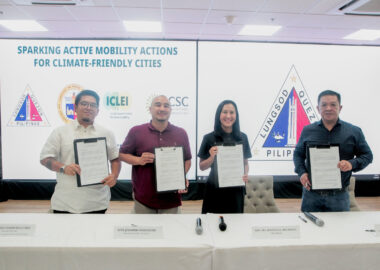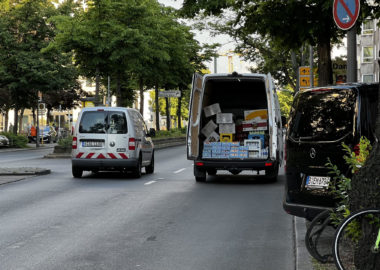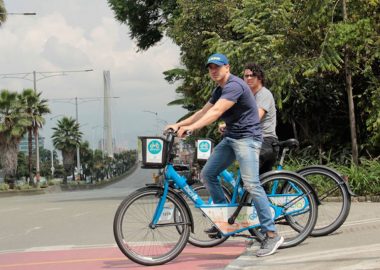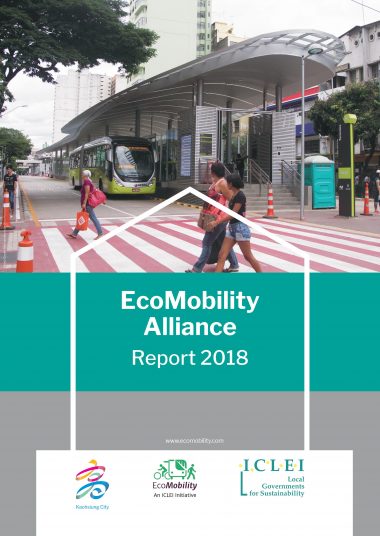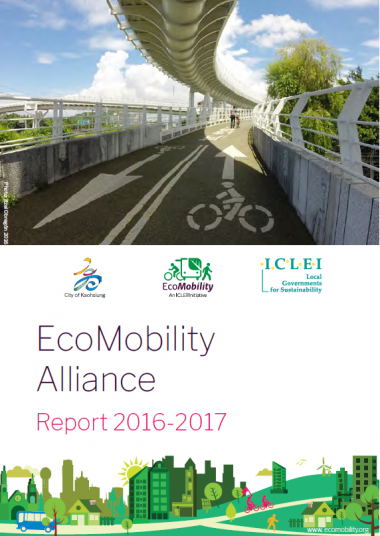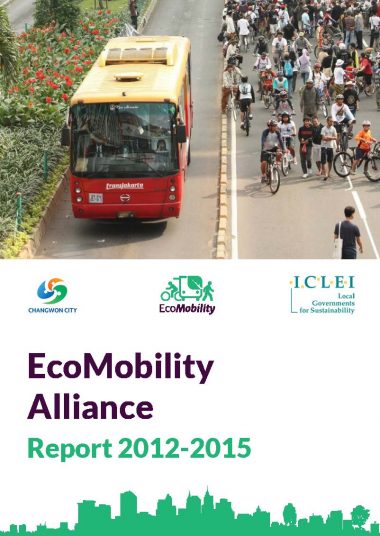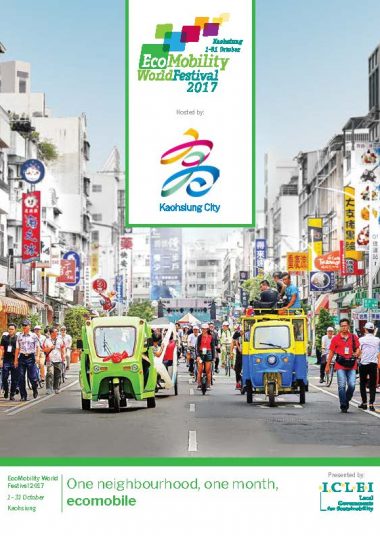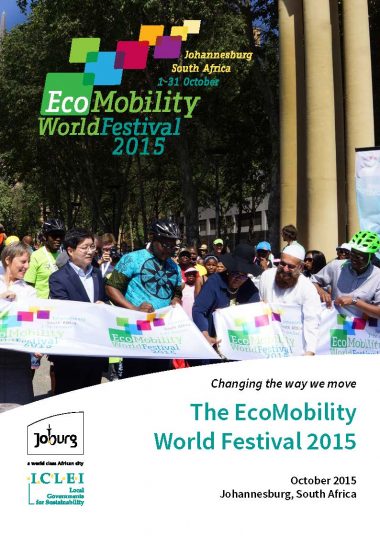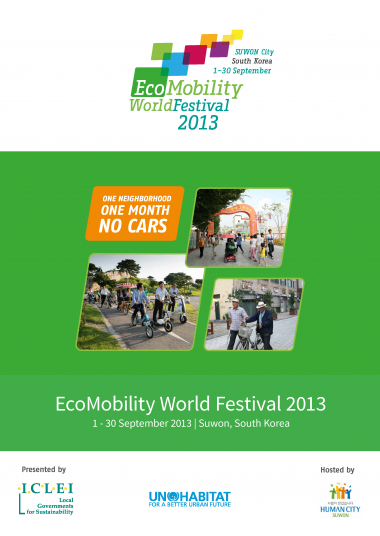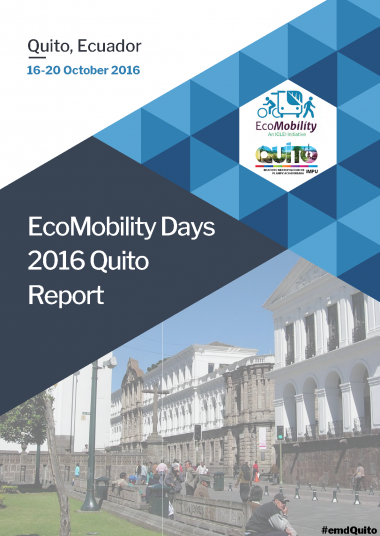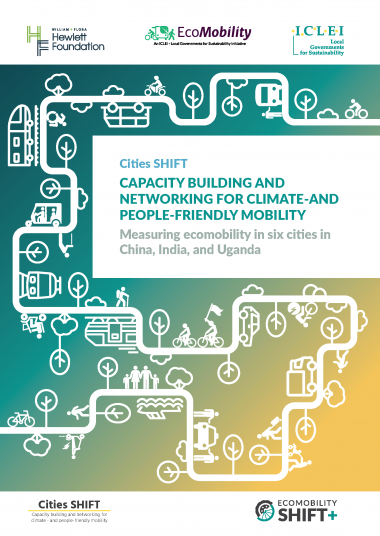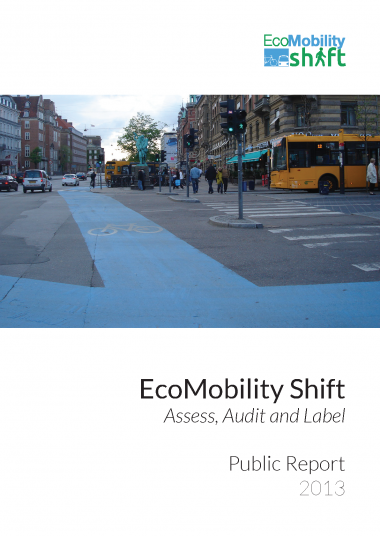EcoMobility initiative

EcoMobility gives priority to walking, cycling, public transport, and shared light electric vehicles. It promotes travel through integrated, socially inclusive, and environmentally-friendly options without depending on privately-owned vehicles.
Activities

EcoMobility Alliance
INITIATIVE
The EcoMobility Alliance is a network of ambitious cities, led by innovators and visionaries and supported by experts and businesses. The Alliance is committed to building a sustainable mobility future that is efficient, people-centered, low emission and environmentally-friendly.
EcoMobility World
Festival & Congress
INITIATIVE
The EcoMobility World Festival series by ICLEI is a month-long presentation of an innovative and forward-thinking urban mobility culture. It is organized as a community-based mise-en-scène, during which one neighborhood is temporarily converted into a vibrant ecomobile neighborhood, which prioritizes active mobility and public transit, to showcase a real-life vision of people-centered urban living for the future.
The EcoMobility World Congress series complements the EcoMobility World Festival to attract international experts to the Festival for them to witness the unique experiment and to discuss and share their experiences and opinions on car-free development.


EcoMobility Days
INITIATIVE
The EcoMobility Days combine the main elements that the EcoMobility Alliance offers its members: support cities to enhance its sustainable mobility; allow for good practice exchanges; provide tools and methodology for training and provide a space of high-level discussions.
EcoMobility SHIFT+
INITIATIVE
The EcoMobility SHIFT+ tool is a methodology to (self)-assess cities’ mobility performance, identify strengths and weaknesses, act to improve and establish a path of continuous improvement. The EcoMobility SHIFT tool was launched in 2013 and has been adopted by European and Australian cities. In 2018, the tool was updated to reflect the current debates on urban mobility systems that are suitable for both developed and developing cities; it is now known as EcoMobility SHIFT+.

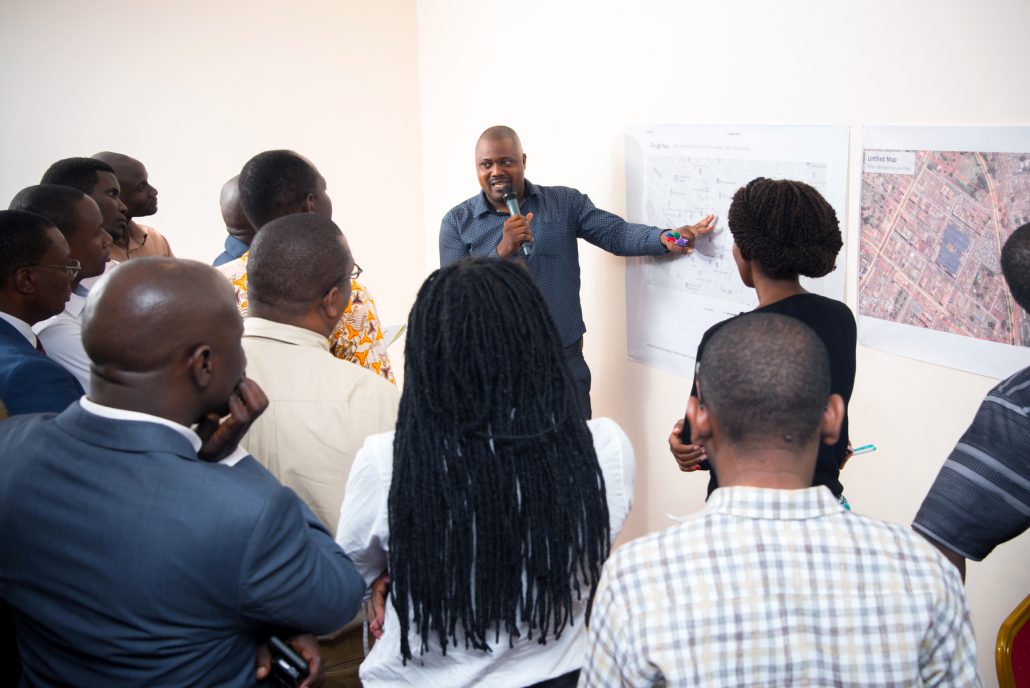
CitiesSHIFT
PROJECT
The overarching goal of the “CitiesSHIFT: Capacity building and networking for climate- and people-friendly mobility” project was to support cities to identify challenges and opportunities of urban mobility system in the hope that the city could shift towards more ecomobile modes of travel, i.e., walking, cycling, shared and public transport. The Hewlett Foundation and the EcoMobility Alliance funded the two-year project (2018 to 2020) which was implemented in six cities in China, India, and Uganda.
EcoMobility SHIFT
INITIATIVE
The EcoMobility SHIFT methodology is a total quality management scheme tool created by academia, non-governmental organizations and cities for use and implementation in medium-sized and developed cities. The tool enables cities to measure and audit the performance of urban mobility, to establish a baseline and to identify areas for further development, ultimately helping cities to change their urban transport development trajectory and mobility plans.
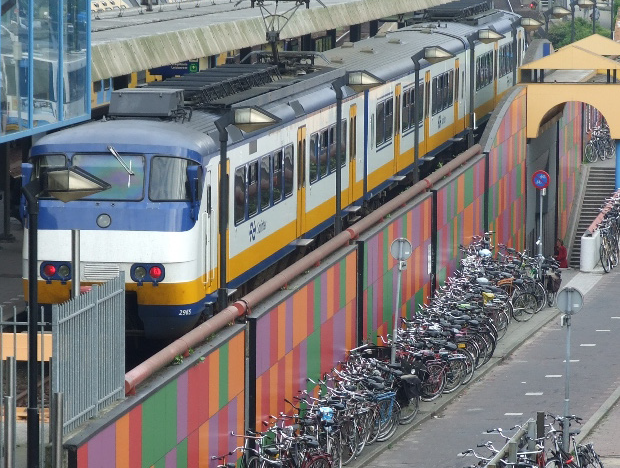
Updates




